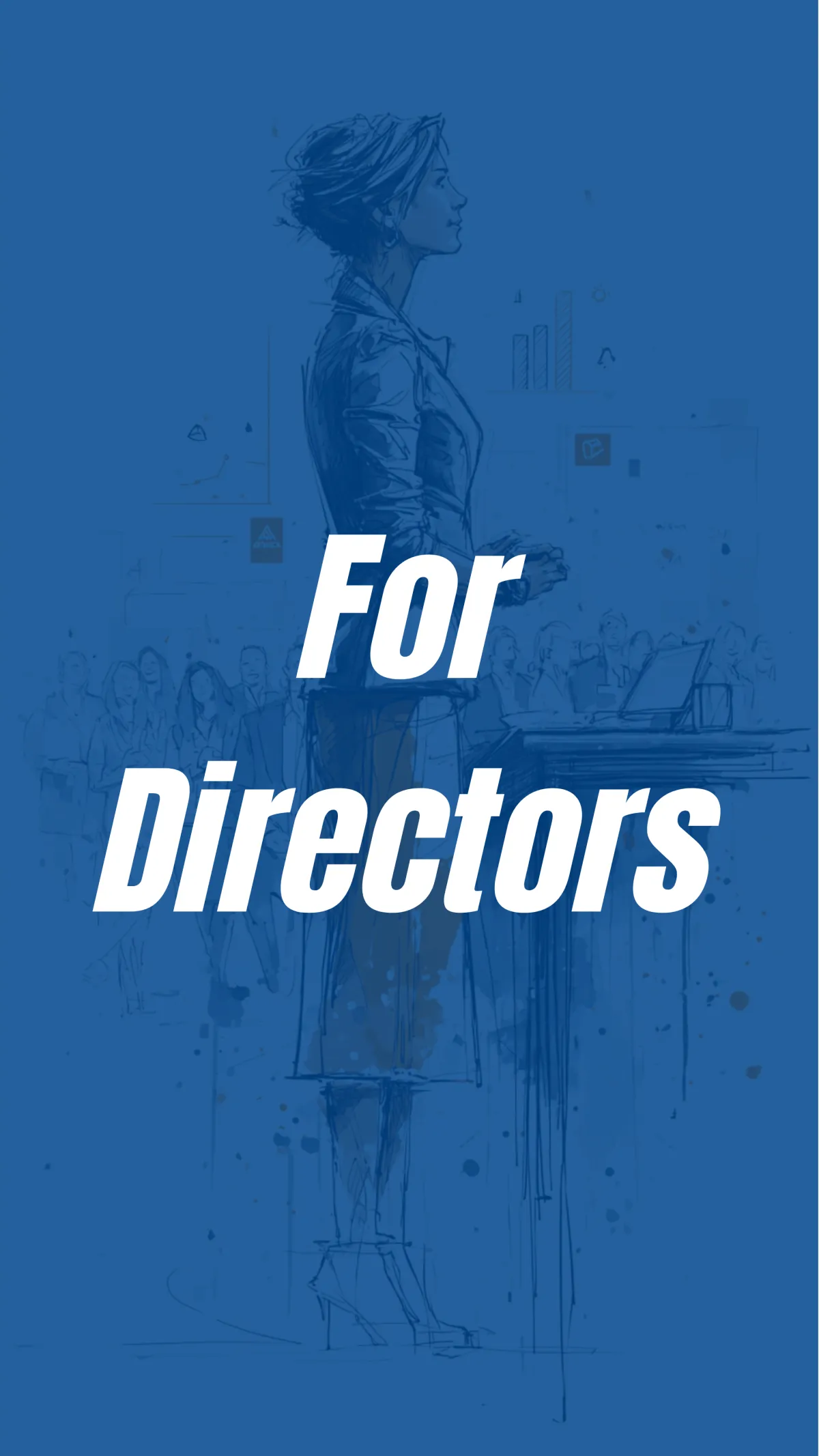
What Makes Real Estate Events Stick in Memory? Key Insights
Real estate events can be pivotal moments in a professional's journey. But what makes real estate events stick in memory, creating lasting impressions long after they conclude? That's the crucial question for anyone involved in real estate marketing or event planning.
Today, we look into the essential ingredients that transform standard real estate gatherings into truly unforgettable experiences. We'll explore strategies that go beyond simple logistics, focusing on the psychology of memory formation and engagement to make your next event a benchmark for success stories in the estate market.
What makes real estate events stick in memory? Understanding these elements can significantly improve your event's impact and its long-term retention in attendees' minds, affecting everything from networking success to brand perception. This discussion should take you a few min read to absorb.
Ready to turn these insights into real revenue for your real estate business? Stop struggling with marketing that doesn't deliver results. In just 20 minutes, we'll create a customized plan to help you implement these strategies and grow your business. No fluff, no cookie-cutter approaches – just practical solutions tailored to your specific challenges. Book your complimentary discovery call today at https://lesix.agency/discovery and start seeing real results.
The Power of Surprise
Introducing an element of surprise can dramatically shift an event's memorability. Surprise acts as a pattern interrupt, jolting attendees from their typical expectations and heightening their attention. This heightened state of awareness is conducive to stronger memory encoding, a fundamental process in memory formation.
Think about a speaker who unexpectedly incorporates a captivating, relevant demonstration or a sudden, positive change in the event schedule. These moments stand out because they are different. Even minor surprises, like an unforeseen small gift or an impromptu performance, can create ripples of conversation and positive feelings that extend well beyond the event itself, aiding memory retrieval later.
Such unexpected elements don't just entertain; they make the brain work a little harder, creating new neural pathways. The effectiveness of surprise in enhancing memory is a topic often discussed in cognitive psychology, highlighting how novelty aids in creating detailed memories. Many studies examining memory performance confirm that unexpected stimuli are better remembered.
Engage the Senses
Our memories are not just visual; they are intricately woven with all our sensory inputs. To create a deeply memorable event, stimulate multiple senses: sight, sound, smell, taste, and touch. The more senses engaged, the richer the perceptual details encoded, leading to a more robust remembered event.
Consider the comforting aroma of freshly brewed coffee during a morning session, the energizing sound of an upbeat live band, or a hands-on station where attendees can interact with new property tech. One innovative realtor organized a 'Scent Scape' activity, where different fragrances represented distinct neighborhoods, offering a personal experience linked to olfactory memory. These sensory details contribute significantly to long-term memory, making the event more vivid in autobiographical memories.
Incorporating various visual features is also important, but combining them with other sensory inputs amplifies their impact. The brain's medial temporal lobe regions, crucial for forming new memories, respond well to rich, multi-sensory experiences. Paying attention to these details can make the difference between a forgotten meeting and a cherished memory.
Make it Interactive
Passive participation often leads to diminished engagement and poor memory retention. Actively involving attendees transforms them from mere spectators into participants. Interactive elements such as workshops, contests, or dynamic networking sessions can significantly enhance memory of the event.
For example, a 'Property Pitch Challenge' or a 'Collaborative Community Design' workshop can make learning active and fun. I once participated in an event that featured a team-based construction challenge using simple materials. The activity was engaging, fostered teamwork, and the social interactions helped me recall my teammates and the event's message years later. Such memory tasks improve memory performance.
Interaction also caters to different learning approaches. Some people learn best by doing, and interactive sessions provide this opportunity. This active involvement stimulates deeper cognitive processing, which is vital for transferring information to long-term memory. An annual review of event feedback often shows higher satisfaction with interactive elements.
Tell Stories

Humans are inherently drawn to narratives. Stories provide context, evoke emotion, and are more easily remembered than dry facts or statistics. Sharing real life experiences and success stories can forge strong emotional connections with your audience.
Instead of data-heavy presentations, encourage speakers to share their personal journeys in the real estate market. Client testimonials about their home-buying experiences, or seasoned agents recounting their most insightful anecdotes, can be incredibly powerful. These narratives tap into autobiographical memory, making the content relatable and sticky, which is a principle highlighted in cognitive psychology.
Stories with a clear structure—beginning, conflict, resolution—are particularly effective for memory encoding. The emotional valence of a story, whether inspiring or cautionary, also plays a significant role. Emotionally charged information is often prioritized by the brain for memory formation, turning an ordinary presentation into a memorable lesson. Many principles from learning memory research support this approach.
Location, Location, Location
The principle that location is paramount in real estate also applies to events. A distinctive and fitting venue can transform an ordinary gathering into an extraordinary one. Choosing a location that aligns with your event's theme or offers a novel experience can significantly contribute to it being a remembered event.
Consider hosting your event in an art gallery, a historic building, a scenic rooftop, or even a re-purposed industrial space. An event I recall fondly was held in a beautifully restored old library, with the theme 'Chapter One: Your Real Estate Success'. The venue itself became a talking point and reinforced the event's message, contributing to detailed memories.
The environment influences mood and perception. A stimulating or pleasant venue can enhance attendees' receptiveness and overall experience, thereby aiding long-term retention of the event's content and positive associations. The setting provides rich perceptual details that get woven into the fabric of the memory.
Embrace Technology
Technology offers numerous avenues to make real estate events more engaging and memorable. From interactive displays to seamless networking tools, tech can elevate the attendee experience. Consider using augmented reality (AR) for property showcases or a dynamic social media feed projected at the venue.
Custom event apps are increasingly popular, facilitating networking by matching attendees based on interests, or providing personalized schedules. Such tools can streamline social interactions and information access. It's important that any app collecting user data has a clear privacy policy, which attendees should be able to review easily. For example, a link to the privacy policy should be accessible within the app.
Virtual Reality (VR) can offer immersive property tours, a personal experience that is hard to forget. Live polling and Q&A platforms can increase audience participation during presentations. These technological touchpoints create novel experiences that are more likely to be encoded into long-term memory. Exploring tools discussed on science daily or in tech journals can provide fresh ideas.
Give Them Something to Take Home
Thoughtful takeaways can extend the event's impact long after it concludes. The key is to offer items that are useful, creative, or meaningfully connected to the event's theme, rather than generic promotional products. A well-chosen item serves as a tangible reminder, aiding memory retrieval.
Examples include a small plant symbolizing growth in the estate market, a custom-designed notebook for jotting down insights, or a digital toolkit with resources shared during the event. One event provided 'Future Vision Kits' containing goal-setting templates and a small inspiring desk object. These items continue to spark recall of the event and its messages, thus enhancing memory related to the professional development experienced.
Here's a table with some ideas for memorable takeaways:
Takeaway IdeaConnection to MemoryRelevance to Real EstateBranded Seed Packets (e.g., "Grow Your Investment")Symbolic of growth, tangible reminder.Investment, growth, new beginnings.High-Quality Local Coffee/Tea SamplerSensory reminder, daily use.Local expertise, community focus.Pocket-Sized Real Estate Glossary or Tip BookUseful reference, prolongs engagement.Industry knowledge, professional development.Custom USB Drive with Event Resources & PhotosPractical, provides valuable content.Information sharing, event recap.Donation to a Local Charity in Attendee's NameCreates positive emotional connection.Community involvement, social responsibility.
Such items act as cues for reconstructive memory, helping attendees piece together their experiences. Considering the individual differences in what people value can also inform your choice of takeaways.
Create Moments of Connection
People primarily remember how an event made them feel. Fostering genuine connections among attendees, and between attendees and speakers, is crucial. Activities that encourage open sharing or collaborative problem-solving can create powerful emotional bonds.
A 'Wisdom Exchange' session where participants share their biggest professional challenges and receive peer advice can be very impactful. Another approach is a 'Mentorship Mingle' where experienced professionals offer brief, focused guidance to newer agents. These social interactions contribute to a positive emotional valence, which studies examining memory have shown to be vital for long-term retention.
These connections build a sense of community and shared experience. The positive emotions generated during such interactions become strongly associated with the event itself. Such experiences often form the core of autobiographical memories related to professional growth.
Inject Some Humor

Laughter is a powerful tool for creating positive associations and enhancing memory. Incorporating humor appropriately can make your event more enjoyable and its content more memorable. This could be through a witty MC, a relevant comedy segment, or simply encouraging a light-hearted atmosphere.
Consider a 'Real Estate Reality Check' session where humorous, yet relatable, industry anecdotes are shared. A stand-up comedian specializing in corporate or real estate-themed humor can also be effective. The key is to ensure the humor is inclusive and aligns with the event's professional tone. A study referenced in American Psychologist might even touch on how humor affects memory performance.
Positive emotions like amusement can improve paying attention and make information processing easier. When people are relaxed and enjoying themselves, they are more receptive to new ideas. Humor helps create what some call 'sticky' memories – those that are easily recalled. Referencing research from sources like Oxford University or Cambridge University Press on humor and learning could provide deeper insights for planning.
End with a Bang
The peak-end rule, a concept from cognitive psychology, suggests that people largely judge an experience based on how they felt at its most intense point (the peak) and at its end. Therefore, a strong, positive conclusion is vital for a lasting positive memory of your real estate event. It's a good idea to invest in this final impression.
This doesn't necessarily mean a costly spectacle. It could be a highly motivational closing speaker, a collective activity like a group pledge or goal-setting ritual, or a surprise announcement of a valuable resource. One event concluded with attendees launching biodegradable lanterns carrying their aspirations, creating a powerful visual and emotional climax which helped to enhance memory of the entire day.
The ending should provide a sense of closure and leave attendees feeling inspired or uplifted. This final powerful impression can color their entire recollection of the event, solidifying its place as a positive remembered event. This reinforces the details retained from earlier parts of the event as well.
Follow Up Creatively
The event's influence doesn't stop when the doors close. A creative and thoughtful follow-up strategy can reinforce the positive memories and extend the engagement. This goes beyond a generic thank-you email.
Send attendees a curated photo gallery, a short highlight video capturing the event's best moments, or a digital summary of key insights and success stories shared. Personalized follow-ups, perhaps referencing a contribution an attendee made or a connection they formed, can be particularly effective. These actions help solidify the memory formation process for the event.
One memorable follow-up involved sending a 'digital time capsule' containing photos, notes from sessions, and attendee goals, with a reminder to revisit it in six months. This kind of engagement aids memory retrieval and keeps the event relevant. Make sure any follow-up communications adhere to your stated privacy policy, especially concerning the use of personal experience data or images. Reading about effective real estate marketing often highlights innovative follow-up.
What Makes Real Estate Events Stick in Memory? Make it Exclusive
A sense of exclusivity can increase the perceived value and desirability of an event, making it more memorable. This isn't about being elitist, but about creating an experience that feels special and curated for the attendees. This can affect how much importance people assign to remembering the event.
This could manifest as an invitation-only workshop, a special session for early registrants, or a post-event online community for attendees. Limited access to certain content or speakers can make those elements more sought after and thus more memorable when experienced. Such strategies can counter the anchoring bias if initial perceptions weren't stellar, by adding a high-value component.
Creating distinct tiers or experiences within a larger event can also make attendees feel they are part of something special. The anticipation and attainment of access to something exclusive can enhance the emotional valence associated with the event. It's important that terms of access are clear, perhaps outlined in materials that might also reference event terms privacy policy policy details regarding participation.
Even simple things, like early bird access to future estate market insights, can make attendees feel valued. This approach doesn't have to be complex, but it should make attendees feel like they received something others didn't. This perceived value can contribute to more detailed memories being formed and retained.
Furthermore, consider the phenomenon of 'flashbulb' memories – vivid, detailed recollections of emotionally arousing events. While a typical real estate event might not reach the intensity of a national event like the Simpson trial discussions, creating moments of high emotional engagement and perceived significance can lead to stronger, more detailed event memories. Such strong memories are less prone to the challenges faced by individuals with even mild cognitive impairment, illustrating the power of impactful experiences on memory formation generally, though it's important to approach such comparisons thoughtfully and focus on broad memory principles.
The brain's temporal lobe, particularly the medial temporal structures, is critical for these processes. By creating events that are emotionally resonant and significant, we are effectively working with these brain systems to foster long-term retention. Many memory studies published by outlets like Cambridge University Press or Oxford University Press, or summarized in journals like Current Opinion or Science Daily, support these ideas on enhancing memory through experience design. If you're interested in more depth, searching Google Scholar for "event memorability" or "enhancing autobiographical memory" can yield fascinating research.
Conclusion
So, what makes real estate events stick in memory? It's a thoughtful combination of surprise, deep sensory engagement, genuine emotional connection, and elements that make the experience feel special. It's about crafting experiences that resonate on a personal level, not just conveying information.
The most memorable events in the real estate sector are often those that engage attendees actively and emotionally, turning passive observation into active participation. They tell compelling stories and create moments that people naturally want to recall and discuss. Ultimately, a well-remembered event can significantly boost your real estate marketing efforts and build lasting professional relationships.
When planning your next real estate event, think beyond the conventional. Strive to create an atmosphere where every detail, from the venue to the follow-up, contributes to a cohesive and memorable narrative. By focusing on these principles of memory encoding and emotional valence, you can create something truly impactful that strengthens your position in the estate market.
Don't let another day pass without a clear marketing strategy that actually works. In just 20 minutes, we can develop a customized plan to help you implement these ideas and start generating real revenue. Our discovery calls have helped hundreds of real estate professionals just like you transform their marketing from a source of stress to a growth engine. Take the next step now – visit https://lesix.agency/discovery to book your complimentary session and start building the business you deserve.










